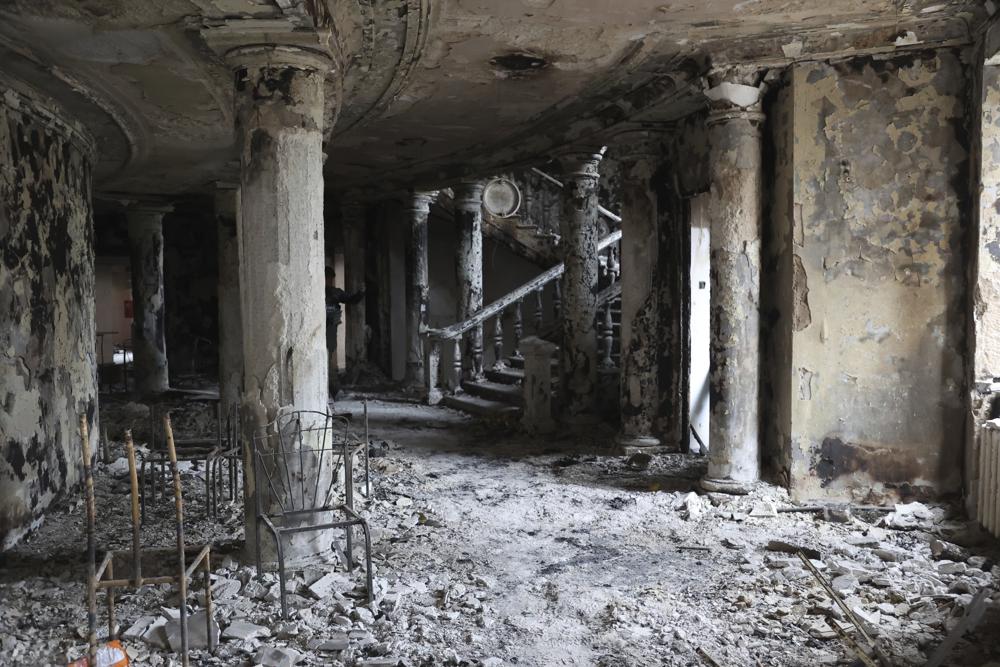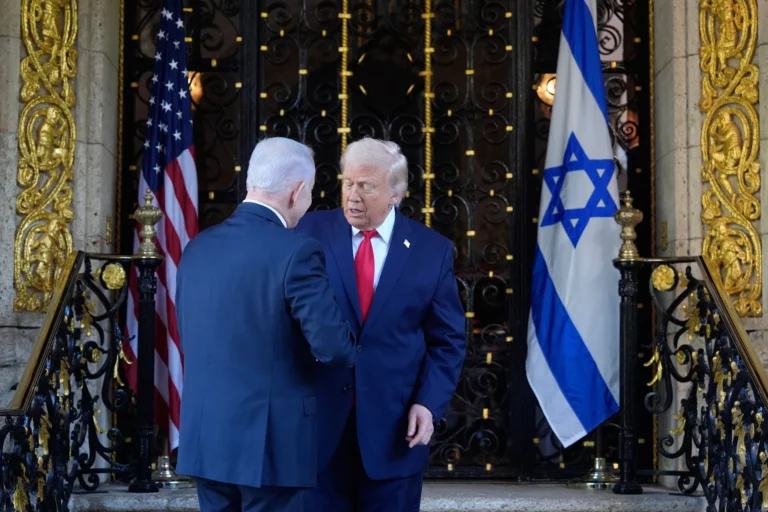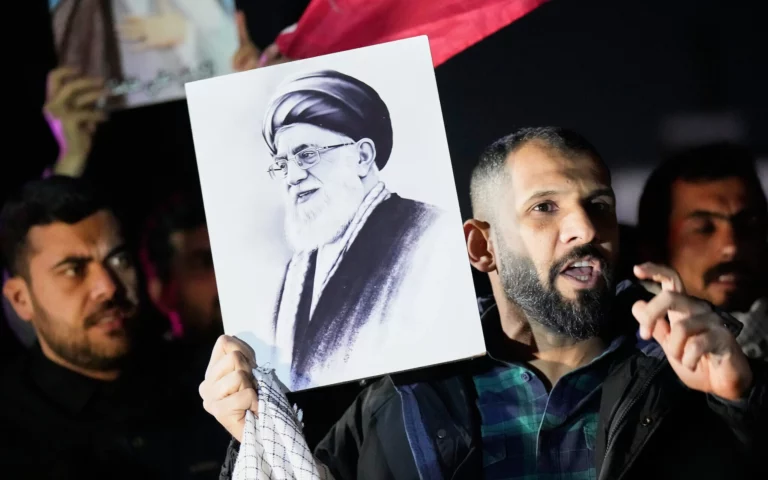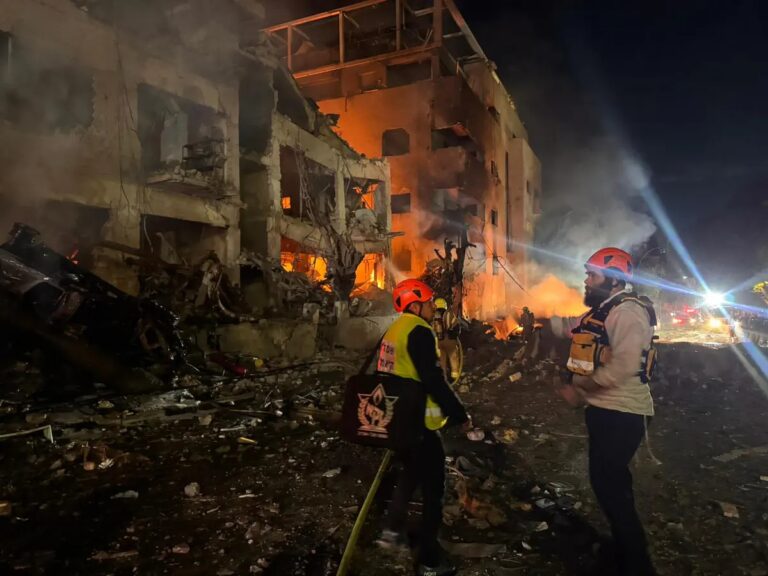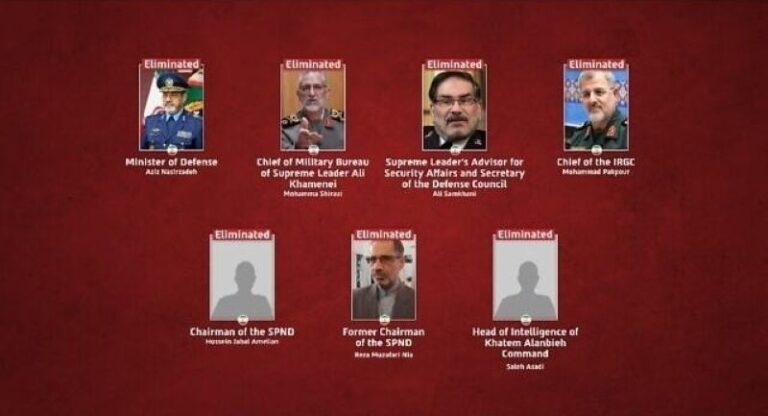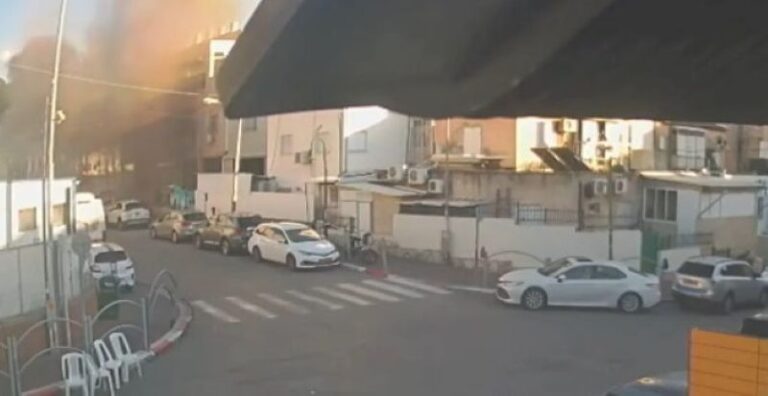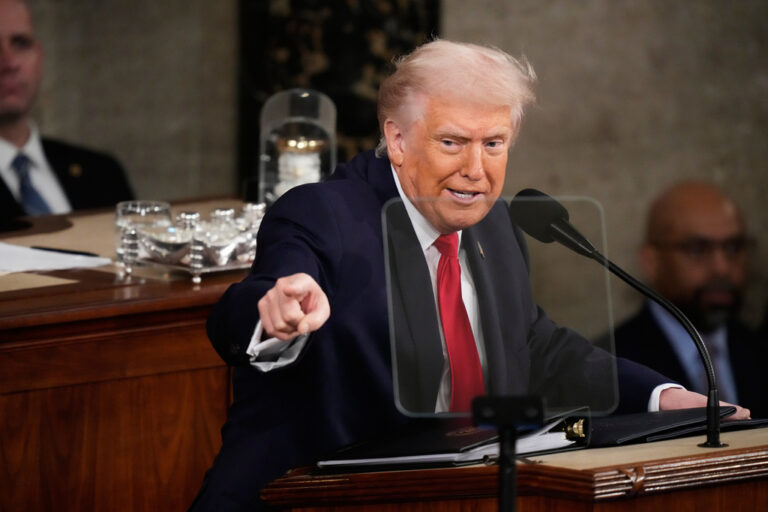Complaining that the West is “stuffing Ukraine with weapons,” Russia bombarded railroad stations and other supply-line targets across the country, as the European Union moved to further punish Moscow for the war Wednesday by proposing a ban on oil imports.
Heavy fighting also raged at the Azovstal steel mill in Mariupol that represented the last stronghold of Ukrainian resistance in the ruined southern port city, according to the mayor. A Russian official denied that Moscow’s troops were storming the plant, but the commander of the main Ukrainian military unit inside said Russian troops had broken into the mill’s territory.
The Russian military also said it used sea- and air-launched missiles to destroy electric power facilities at five railway stations across Ukraine, while artillery and aircraft also struck troop strongholds and fuel and ammunition depots.
Ukrainian Foreign Minister Dmytro Kuleba accused Russia of “resorting to the missile terrorism tactics in order to spread fear across Ukraine.”
Air raid sirens sounded in cities across the country on Wednesday night, and attacks were reported near Kyiv, the capital; in Cherkasy and Dnipro in central Ukraine; and in Zaporizhzhia in the southeast. In Dnipro, authorities said a rail facility was hit. Videos on social media suggested a bridge there was attacked.
There was no immediate word on casualties or the extent of the damage.
Responding to the strikes in his nightly video address, Ukrainian President Volodymyr Zelenskyy said: “All of these crimes will be answered, legally and quite practically – on the battlefield.”
The flurry of attacks comes as Russia prepares to celebrate Victory Day on May 9, marking the Soviet Union’s defeat of Nazi Germany. The world is watching for whether Russian President Vladimir Putin will use the occasion to declare a victory in Ukraine or expand what he calls the “special military operation.”
A declaration of all-out war would allow Putin to introduce martial law and mobilize reservists to make up for significant troop losses.
Kremlin spokesman Dmitry Peskov dismissed the speculation as “nonsense.”
Meanwhile, Belarus, which Russia used as a staging ground for its invasion, announced the start of military exercises Wednesday. A top Ukrainian official said the country will be ready to act if Belarus joins the fighting.
The attacks on rail infrastructure were meant to disrupt the delivery of Western weapons, Russian Defense Ministry spokesman Maj. Gen. Igor Konashenkov said. Defense Minister Sergei Shoigu said the West is “stuffing Ukraine with weapons.”
A senior U.S. defense official, speaking on condition of anonymity to discuss the Pentagon’s assessment, said that while the Russians have tried to hit critical infrastructure around the western city of Lviv, specifically targeting railroads, there has been “no appreciable impact” on Ukraine’s effort to resupply its forces. Lviv, close to the Polish border, has been a major gateway for NATO-supplied weapons.
Weaponry pouring into Ukraine helped its forces thwart Russia’s initial drive to seize Kyiv and seems certain to play a central role in the growing battle for the Donbas, the eastern industrial region that Moscow now says is its main objective.
Ukraine has urged the West to ramp up the supply of weapons ahead of that potentially decisive clash. Chancellor Olaf Scholz of Germany, which had been slow at first to help arm Ukraine, said his government is considering supplying howitzers, in addition to Gepard anti-aircraft guns and other equipment it has agreed to send.
The governor of the eastern Donetsk region, which lies in the Donbas, said Russian attacks left 21 people dead on Tuesday, the highest number of known fatalities since April 8, when a missile attack on the railway station in Kramatorsk killed at least 59.
In addition to supplying weapons to Ukraine, Europe and the U.S. have sought to punish Moscow with sanctions. The EU’s top official called on the 27-nation bloc on Wednesday to ban Russian oil imports, a crucial source of revenue.
“We will make sure that we phase out Russian oil in an orderly fashion, in a way that allows us and our partners to secure alternative supply routes and minimizes the impact on global markets,” European Commission President Ursula von der Leyen told the European Parliament in Strasbourg, France.
The proposal needs unanimous approval from EU countries and is likely to be the subject of fierce debate. Hungary and Slovakia have already said they won’t take part in any oil sanctions. They could be granted an exemption.
The EU is also talking about a possible embargo on Russian natural gas. The bloc has already approved a cutoff of coal imports.
Russia’s economy is heavily dependent on oil and natural gas exports. Kuleba, the Ukrainian foreign minister, said European purchases of Russian energy produce billions in revenue and support the Kremlin’s “war machine.”
Von der Leyen also proposed that Sberbank, Russia’s largest bank, and two other major banks be disconnected from the SWIFT international banking payment system.
In Mariupol, Mayor Vadym Boychenko said that Russian forces were targeting the already shattered Azovstal plant with heavy artillery, tanks, aircraft, warships and “heavy bombs that pierce concrete 3 to 5 meters thick.”
“Our brave guys are defending this fortress, but it is very difficult,” he said.
Ukrainian fighters said Tuesday that Russian forces had begun storming the plant. But the Kremlin said that was not true. “There is no assault,” Peskov said.
Denys Prokopenko, commander of the Ukrainian Azov regiment that’s defending the plant, said Russian forces have broken into the plant’s territory.
Prokopenko said in a video that the incursions continued for a second day, “and there are heavy, bloody battles.”
“The situation is extremely difficult, but in spite of everything, we continue to carry out the order to hold the defense,” he added.
His wife, Kateryna Prokopenko, told The Associated Press: “We don’t want them to die. They won’t surrender. They are waiting for the bravest countries to evacuate them.”
Meanwhile, the United Nations announced that more than 300 civilians were evacuated Wednesday from Mariupol and other nearby communities. The evacuees arrived in Zaporizhzhia, about 140 miles (230 kilometers) to the northwest, where they were receiving humanitarian assistance.
“Many came with nothing but the clothes they were wearing, and we will now support them during this difficult time, including with much-needed psychological support,” said Osnat Lubrani, the U.N. humanitarian coordinator for Ukraine.
Over the weekend, more than 100 people — including women, the elderly and 17 children — were evacuated from the plant during a cease-fire in an operation overseen by the U.N. and the Red Cross. But the attacks on the plant soon resumed.
The Russian government said on the Telegram messaging app that it would open another evacuation corridor from the plant during certain hours on Thursday through Saturday. But there was no immediate confirmation of those arrangements from other parties, and many previous such assurances from the Kremlin have fallen through, with the Ukrainians blaming continued fighting by the Russians.
It was unclear how many Ukrainian fighters were still inside, but the Russians put the number at about 2,000 in recent weeks, and 500 were reported to be wounded. A few hundred civilians also remained there, the Ukrainian side said.
Mariupol, and the plant in particular, have come to symbolize the misery inflicted by the war. The Russians have pulverized most of the city in a two-month siege that has trapped civilians with little food, water, medicine or heat.
The city’s fall would deprive Ukraine of a vital port, allow Russia to establish a land corridor to the Crimean Peninsula, which it seized from Ukraine in 2014, and free up troops to fight elsewhere in the Donbas.
(AP)

